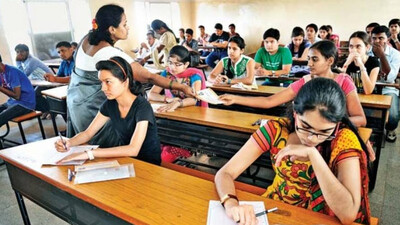Recommended Stories
The new book "Wit and Wisdom: Pickings from the Parsee Punch" by Mushirul Hasan (Niyogi Books) released recently contains humorous illustrations from the Parsi comic weekly paper that began publication in 1854 in the Bombay presidency and continued until the 1930s.
"Cartoons are not critically analysed in India. They aren`t only about parody, satire but also forum for serious intervention both in public and cultural life. Cartoons form a serious source material for information," says Hasan, Director General of the National Archives of India.
Soli Sorabjee, former Solicitor General of India who was present during the launch says, "Cartoons are a way of expression and help out in educating people about the contemporary and ancient history.
"It is essential to look at institutions and at ourself. We need to introspect all sense of proportions. Cartoons were in India during the colonial British era too but Britishers took these cartoons in a right spirit."
The Parsee Punch initially appeared as a four sheet weekly with English and Gujarati letter-press below the illustrations. A short while later a selection of cartoons, cuts, sketches began to be published monthly as the `pickings`. Modelled on the "London Punch" the publication contained 24 to 36 pages full of humorous illustrations.
Four years later it changed its name to "Hindi Punch" to broaden its base. The cartoons cover Western India and deal with important contemporary themes, try to describe and analyse social phenomenon as they are besides commenting on the political trends.
Raising the issue of cartoons of Ambedkar and Jawaharlal Nehru in a NCERT textbook that caused a furore among politicians Sorabjee says, "I am surprised the way opposition and ruling party have come together. Ambedkar and Nehru never objected to these cartoons which had been there since 1949. How come there is a sudden awakening on these cartoons".
He said it had become "fashionable to ban everything one disagrees with. It is worrying that people minds are becoming intolerant."
Veteran journalist Vinod Mehta who was also present at the launch says, "Politicians complain that cartoons are unfair, but cartoons are supposed to be unfair and have to be offensive."
Mehta pointed out that he would recommend Hasan to send a copy of the book to Parliamentarians but expressed the fear that the book would then be banned.
This is Hasan`s second book in a series of Punch anthology. The first volume consisted of pickings from the Awadh Punch, published from Lucknow from January 1877 to 1936.
"The Parsee Punch was a fine source for Indian history of cartoons. In German, French and British history cartoons play an important role. Britishers liked the Awadh Puch though these cartoons ridiculed the colonial government. They had enough tolerance, the British government did not put the cartoonists in jail," says Hasan.












